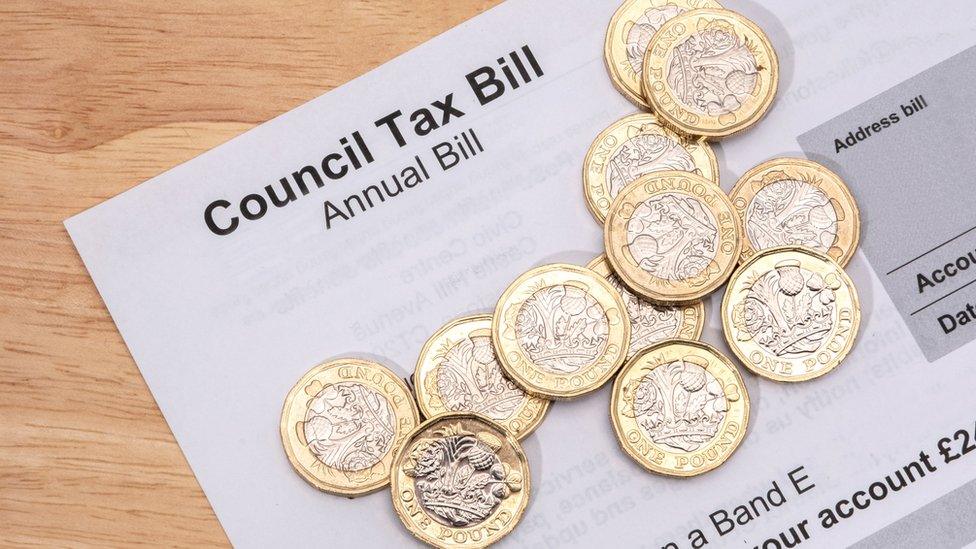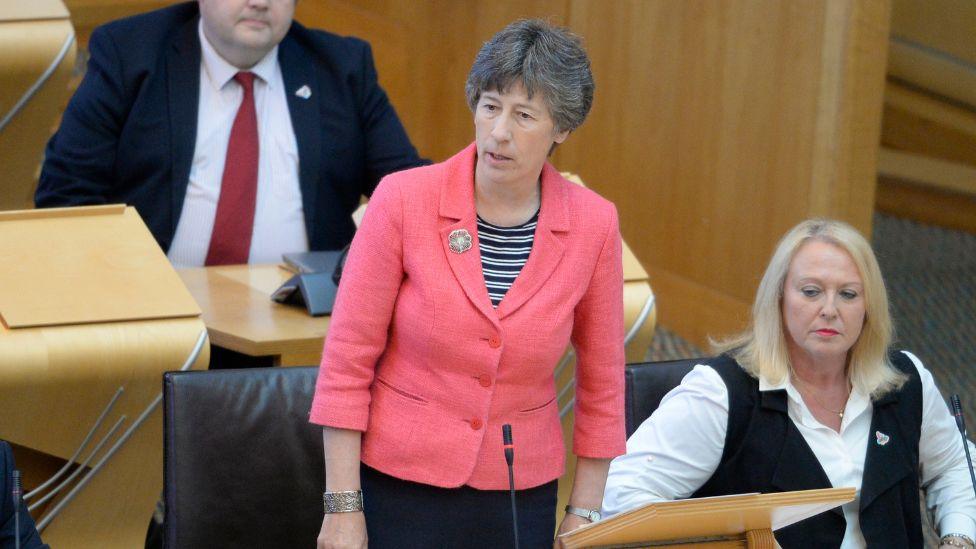One in four Scottish councils fear 'bankruptcy' - study
- Published
- comments

A quarter of councils fear they will not be able to balance their budgets next year, results of a survey suggest.
A Local Government Information Unit (LGIU) study, external gathered responses from 42 council leaders, chief executives and finance directors across three quarters of Scotland's 32 local authorities.
It said it was "only a matter of time" before one effectively went bankrupt.
All respondents said they were planning spending cuts on services and 97% said they would be hiking fees and charges.
Ministers, who are due to announce the Scottish Budget on Tuesday, said funding talks were ongoing with Cosla.
The council umbrella body warned last week that local authorities needed nearly £14.4bn in the budget just to "stand still".
LGIU chief executive Jonathan Carr-Watson warned councils in Scotland "are raising a red flag" that finances are "completely unsustainable".
"With nearly a quarter of councils warning they may be unable to fulfil their statutory duties, it is only a matter of time before we see the first council in Scotland declare effective bankruptcy," he said.
"Councils have little to no confidence in local government finance and the issues behind the crisis are not going away.
"Scottish government must work productively with councils to restore trust, remove ring fencing, identify revenue streams and reform core funding for councils to ensure residents, and particularly the most vulnerable in communities, are able to access the services they need and pay for."

More than four in five of respondents to the survey, said cuts would be made to "back office/corporate" services - described as services that provide capacity for councils to do their work.
About two-thirds said they would cut education spending, as well as outlay on parks and leisure and business support.
Three-quarters of respondents to the survey said they believed cuts to services would be evident to the public and only 24% said they thought services were as good as they were last year.
Only 8% of respondents replied that they were happy with the progress the Scottish government had made in considering and involving local government in policy decisions.
'Sudden U-turn'
Every respondent said they had planned to raise council tax. Almost three in four (73%) said they planned to raise it by between 5 and 10%, while just over one in 10 (11%) reported they wanted to see a tax hike of more than 10%.
However, a council tax freeze was announced by First Minister Humza Yousaf in October.
No details have emerged on how much money councils will receive to compensate for this.
The Scottish government insisted the policy would be fully funded.
Scottish Conservative finance spokesperson Liz Smith agreed council finances were "completely unsustainable".

Tory MSP Liz Smith has criticised the government's financial management
"This is the predictable consequence of years of SNP mismanagement and underfunding, and of the sudden U-turn that introduced a council tax freeze - but without anyone having given any thought to where the money was to come from," she added.
The Scottish government said it had increased resources available to councils by £376m in 2023-24, compared to the previous year.
But ministers have warned they are facing the most challenging budget since devolution, citing high inflation and the "worst-case scenario" Autumn Statement.
A spokesperson said funding negotiations were being held with Cosla and that any predictions about the budget would be "entirely speculative".
'Bankruptcy' fears
The budget warnings have come after Birmingham and Nottingham city councils effectively declared themselves bankrupt via section 114 notices, which prevent spending on virtually everything apart from statutory services.
Scotland does not have the same mechanism but councils are legally obliged to produce a balanced budget each year, and can use reserves to do so. However, a few councils have already emptied their reserves.
If a local authority reported it was struggling to produce a balanced budget, the Accounts Commission - an independent audit body - could be called in, with some decision-making powers transferred to civil servants.
Auditors could also call council to a public hearing to examine financial records.
Related topics
- Published30 September 2023

- Published1 December 2023
